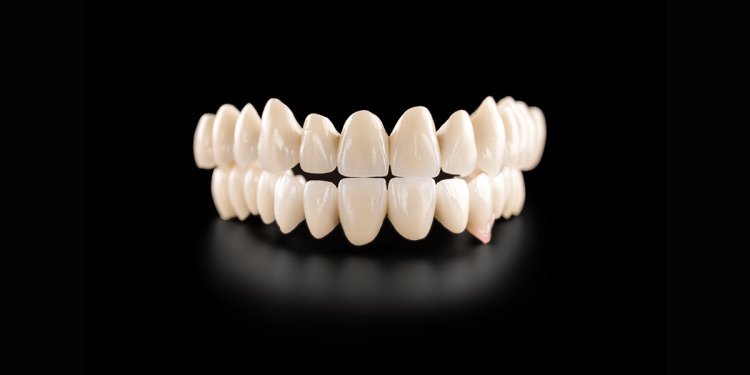The Rise of Zirconia Ceramic Crowns in the UK: A Revolution in Dental Restoration
Zirconia, a crystalline form of the metal zirconium, was first introduced in dentistry in the early 2000s. Initially utilized for frameworks in fixed dental prostheses, such as bridges, zirconia's properties were quickly recognized for its potential in single-tooth restorations as well.

In the realm of dental restoration, innovations continually emerge to enhance both functionality and aesthetics. Among these advancements, zirconia ceramic crowns have emerged as a leading choice for dental professionals and patients alike. Renowned for their durability, lifelike appearance, and biocompatibility, zirconia crowns have revolutionized the landscape of restorative dentistry in the United Kingdom. This article explores the evolution, benefits, and growing popularity of zirconia ceramic crowns within the UK dental industry.
Evolution of Zirconia Crowns:
Zirconia, a crystalline form of the metal zirconium, was first introduced in dentistry in the early 2000s. Initially utilized for frameworks in fixed dental prostheses, such as bridges, zirconia's properties were quickly recognized for its potential in single-tooth restorations as well. As advancements in material science and manufacturing techniques progressed, zirconia crowns evolved to meet the demands of both clinicians and patients.
Benefits of Zirconia Ceramic Crowns:
1. Durability:
Zirconia crowns are exceptionally durable, offering a high degree of strength and resistance to fracture. This durability makes them an ideal choice for restoring posterior teeth subjected to significant biting forces. Unlike traditional porcelain-fused-to-metal crowns, zirconia crowns are less prone to chipping or cracking, providing long-lasting restoration.
2. Aesthetics:
One of the most significant advantages of zirconia ceramic crowns is their natural appearance. The translucent properties of zirconia closely mimic the translucency of natural teeth, resulting in restorations that blend seamlessly with the patient's smile. Additionally, zirconia crowns are customizable in terms of shape, size, and shade, allowing for precise replication of the patient's natural dentition.
3. Biocompatibility:
Zirconia is biocompatible, meaning it is non-toxic and well-tolerated by the body. This property makes zirconia crowns suitable for patients with metal allergies or sensitivities. Moreover, zirconia crowns exhibit minimal plaque accumulation and are resistant to bacterial adhesion, promoting oral health and longevity of the restoration.
4. Minimal Tooth Reduction:
Unlike traditional dental crowns that require substantial tooth reduction for placement, zirconia crowns can be fabricated with minimal preparation of the tooth structure. This conservative approach helps preserve healthy tooth enamel, reducing the risk of sensitivity and potential damage to the pulp.
5. Versatility:
Zirconia ceramic crowns are versatile and can be used for various restorative purposes, including single crowns, implant-supported crowns, and even multi-unit bridges. Their versatility extends to patients of all ages, making zirconia crowns suitable for pediatric, adult, and geriatric populations.
Popularity in the UK:
The popularity of zirconia ceramic crowns in the UK has surged in recent years, driven by factors such as technological advancements, patient demand for aesthetic restorations, and the preferences of dental professionals. Clinicians across the country are increasingly adopting zirconia crowns as their restoration of choice, recognizing the numerous benefits they offer over traditional materials.
In addition to their clinical advantages, zirconia crowns align with the growing trend of minimally invasive dentistry, which emphasizes preserving natural tooth structure whenever possible. Patients appreciate the conservative approach of zirconia crowns, as well as the lifelike appearance they provide.
Moreover, advancements in digital dentistry have streamlined the fabrication process of zirconia crowns, allowing for precise design and rapid turnaround times. Computer-aided design (CAD) and computer-aided manufacturing (CAM) technologies enable clinicians to create highly accurate restorations tailored to each patient's unique anatomy.
Challenges and Considerations:
While zirconia ceramic crowns offer numerous benefits, it's essential to consider certain factors when selecting them as a treatment option. One consideration is the cost, as zirconia crowns may be more expensive than alternative materials. However, many patients view the investment in zirconia crowns as worthwhile due to their longevity and aesthetic appeal.
Another consideration is the expertise required for successful placement of zirconia crowns. Dental professionals must undergo specialized training to master the techniques associated with preparation, impression-taking, and cementation of zirconia restorations. Additionally, proper case selection is crucial to ensure optimal outcomes and patient satisfaction.
Future Outlook:
The future of zirconia ceramic crowns in the UK appears promising, with ongoing advancements in material science, digital technology, and clinical techniques. As the demand for aesthetic and durable restorations continues to grow, zirconia crowns are poised to remain a preferred choice among dental professionals and patients alike.
Furthermore, research into enhancing the properties of zirconia, such as improving translucency and color matching, may further elevate its status as the premier option for dental crowns. Continued collaboration between researchers, manufacturers, and clinicians will drive innovation in zirconia ceramic restorations, ensuring they continue to meet the evolving needs of patients and dental practices.
Conclusion:
Zirconia ceramic crowns have emerged as a game-changer in the field of restorative dentistry, offering unparalleled durability, aesthetics, and biocompatibility. In the UK, their popularity continues to rise as dental professionals and patients recognize the numerous advantages they provide. With ongoing advancements and a commitment to excellence, zirconia crowns are poised to shape the future of dental restoration, setting new standards for quality and patient satisfaction.
What's Your Reaction?











![Wireless Connectivity Software Market Size, Share | Statistics [2032]](https://handyclassified.com/uploads/images/202404/image_100x75_661f3be896033.jpg)



